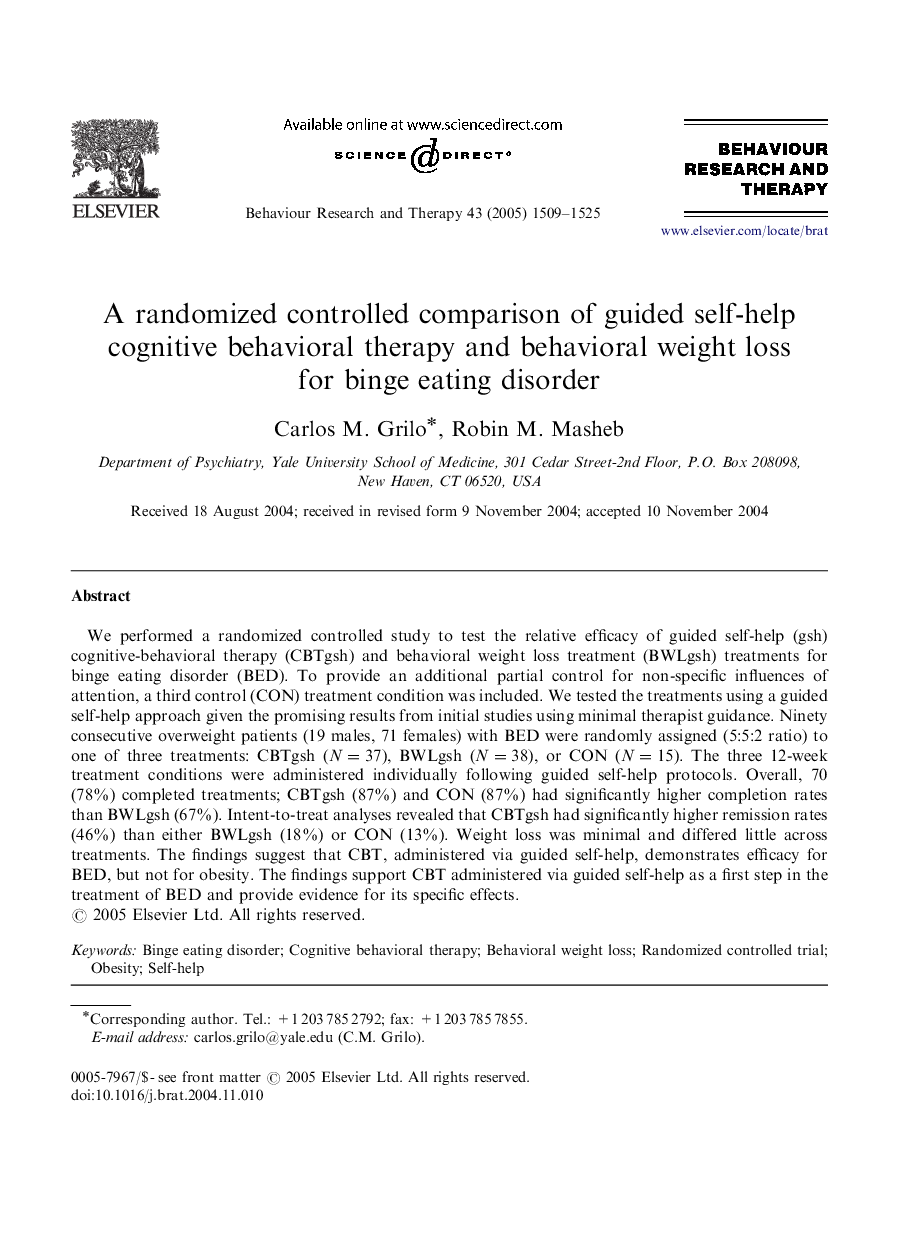| Article ID | Journal | Published Year | Pages | File Type |
|---|---|---|---|---|
| 10444917 | Behaviour Research and Therapy | 2005 | 17 Pages |
Abstract
We performed a randomized controlled study to test the relative efficacy of guided self-help (gsh) cognitive-behavioral therapy (CBTgsh) and behavioral weight loss treatment (BWLgsh) treatments for binge eating disorder (BED). To provide an additional partial control for non-specific influences of attention, a third control (CON) treatment condition was included. We tested the treatments using a guided self-help approach given the promising results from initial studies using minimal therapist guidance. Ninety consecutive overweight patients (19 males, 71 females) with BED were randomly assigned (5:5:2 ratio) to one of three treatments: CBTgsh (N=37), BWLgsh (N=38), or CON (N=15). The three 12-week treatment conditions were administered individually following guided self-help protocols. Overall, 70 (78%) completed treatments; CBTgsh (87%) and CON (87%) had significantly higher completion rates than BWLgsh (67%). Intent-to-treat analyses revealed that CBTgsh had significantly higher remission rates (46%) than either BWLgsh (18%) or CON (13%). Weight loss was minimal and differed little across treatments. The findings suggest that CBT, administered via guided self-help, demonstrates efficacy for BED, but not for obesity. The findings support CBT administered via guided self-help as a first step in the treatment of BED and provide evidence for its specific effects.
Keywords
Related Topics
Health Sciences
Medicine and Dentistry
Psychiatry and Mental Health
Authors
Carlos M. Grilo, Robin M. Masheb,
